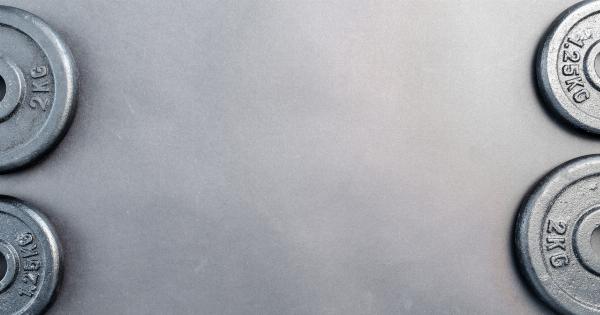Walking is one of the most accessible and easy-to-do forms of exercise. It doesn’t require expensive equipment, a gym membership, or complex movements.
But how effective is walking in burning calories? In this article, we’ll explore the relationship between walking and calorie burning.
Calories and Weight Management
The concept of calories is often associated with weight management. Calories are a unit of measurement that represents the energy in food and drinks.
When we consume more calories than our body needs, the excess is stored as fat, which can lead to weight gain. Conversely, when we burn more calories than we consume, our body uses stored fat as energy and we can lose weight.
Factors Affecting Calorie Burning during Walking
The number of calories you burn while walking depends on several factors:.
- Body weight: The heavier you are, the more calories you’ll burn.
- Walking speed: The faster you walk, the more calories you’ll burn.
- Walking incline: Walking uphill burns more calories than walking on a flat surface.
- Durations: Walking longer distances burns more calories than walking shorter distances.
- In general, the more effort you put into walking, the more calories you’ll burn.
Calories Burned per Mile of Walking
According to various health organizations, an average person burns approximately 100 calories per mile of walking. However, this number can vary depending on the factors listed above.
Here’s a breakdown of the approximate number of calories burned per mile of walking based on body weight:.
- 120 lbs: 65-70 calories
- 140 lbs: 75-85 calories
- 160 lbs: 85-95 calories
- 180 lbs: 95-105 calories
- 200 lbs: 105-115 calories
- 220 lbs: 115-125 calories
It’s important to note that these numbers are estimates. Your actual calorie burn may vary depending on other factors such as walking speed and incline.
Benefits of Walking
Burning calories is just one of the many benefits of walking. Regular physical activity such as walking has numerous health benefits, including:.
- Reduced risk of chronic diseases such as heart disease, high blood pressure, and type 2 diabetes
- Improved muscular strength and endurance
- Improved bone strength
- Improved balance and coordination
- Improved mental health and mood
Walking Tips
To maximize the number of calories burned while walking, consider the following tips:.
- Walk at a brisk pace
- Incorporate inclines or hills into your walking route
- Wear comfortable walking shoes
- Stay hydrated
- Consider listening to music or a podcast while walking to make the time pass more quickly
- Consider incorporating strength training exercises, such as lunges or squats, into your walking routine
Conclusion
Walking is a simple and effective way to burn calories and improve overall health. By understanding the factors that affect calorie burning during walking, you can tailor your walking routine to maximize the number of calories burned.
Remember to wear comfortable shoes, stay hydrated, and consider incorporating hills and strength training exercises into your routine.





























